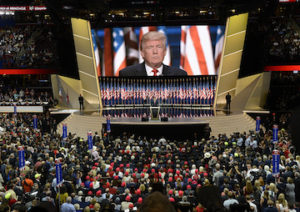Blair’s Bittersweet Exit
British Prime Minister Tony Blair's announcement that he's stepping down won't quell the anger felt on so much of the antiwar left. But my own reaction is a deep sadness that he tarnished a formidable legacy.WASHINGTON — British Prime Minister Tony Blair’s announcement that he’s stepping down won’t quell the anger felt on so much of the antiwar left. But my own reaction is a deep sadness that he tarnished a formidable legacy.
As Blair exits, beleaguered by the unpopularity of the war in Iraq he championed, it’s almost impossible to remember the excitement and energy he called forth 10 years ago when he and his Labor Party won their landslide victory.
The mid-1990s were a joyful time to be on a center-left that seemed to be leaving the old conservatism in the dust. Blair and Bill Clinton represented a charmed and charming reformist future that would take us on a Third Way “beyond” — a big word at the time — both the “old left” and the “new right.” Surprisingly, London and Washington were replacing Stockholm and Paris as epicenters of the democratic left. The word “socialism” was out, but “community” was in. “Collectivism” was replaced by the smoother word, “solidarity.”
Everything about Blair’s project was “new” (he relabeled his venerable party “New Labor”) and “modern” (a word used so much that New Labor started to sound like a Scandinavian furniture store).
Labor’s 1997 pop campaign anthem, “Things Can Only Get Better” by D:Ream, was cloying to some. But as the astonishing returns rolled in on May 1, the lyrics blaring at New Labor’s victory celebration seemed perfectly appropriate both to the exhaustion of British conservatism and to the sense of hope Blair inspired.
What Blair built in his pre-Iraq days was not the Jerusalem in England’s green and pleasant land imagined by the poet William Blake, but something more workaday: generally competent government, steady growth built on reasonably orthodox economic policies, fiscal responsibility, some expansion of public services, a rather serious war on poverty.
The caution of Blair and his top economics minister, Gordon Brown (his almost certain successor), reflected their determination that New Labor would not repeat Old Labor’s mistakes. Blair won a landslide re-election in June 2001. But the rather low turnout showed that while the voters were more or less satisfied, they were no longer rapturous. He won again in 2005, but with a majority reduced by disaffection over Iraq.
At its best, Blairism, like Clintonism, was always a brilliant balancing act. Here is a classic Blair sentence that appeared in a Washington Post Op-Ed piece published Sept. 27, 1998: “A false opposition was set up between rights and responsibilities, between compassion and ambition, between the public and private sectors, between an enterprise economy and the attack on poverty and exclusion.”
With the Third Way, you could have it all. And Blair and Clinton were right in seeing that clearing away those false choices was a necessary precondition to routing their conservative adversaries.
But there were times when Blair seemed to embody Joan Baez’s brilliant reference to the man who was so good with words and at keeping things vague. In the best one-line critique of his style of politics, American economist Jeff Faux wrote in 1999 that “the Third Way has become so wide that it is more like a political parking lot than a highway to anywhere in particular.”
Still, it’s an attractive parking lot. A survey taken by The Independent of London last month — in the teeth of the unpopularity of Blair’s Iraq policies — found 61 percent saying he had been a good prime minister. It’s a fair judgment.
But the same poll found that 69 percent thought Iraq would be Blair’s legacy, and there’s the rub. Oh, how so many of his American friends wish that he had been able to restrain President Bush and had not bought into this war.
“Is the prime minister really the president’s poodle, slavishly willing to jump through any hoops at the request of the White House?” asked a writer for London’s Daily Mail. What makes that quotation interesting is that it’s from a critique of Blair’s support for Clinton’s policies toward Iraq, published in December 1998. Say what you will, there is a kind of consistency in Blair’s pro-American interventionism.
On so many other issues, Blair asked the right questions, and my hunch is that even critics to his left will find themselves building on what he achieved. For their part, Britain’s Conservatives, in an effort to be (yes) “new” and “modern,” have embraced their own version of Blairism. We may be done with Blair, but his influence will long outlive his tenure, and the war he embraced.
E.J. Dionne’s e-mail address is postchat(at symbol)aol.com.
© 2007, Washington Post Writers Group
Your support matters…Independent journalism is under threat and overshadowed by heavily funded mainstream media.
You can help level the playing field. Become a member.
Your tax-deductible contribution keeps us digging beneath the headlines to give you thought-provoking, investigative reporting and analysis that unearths what's really happening- without compromise.
Give today to support our courageous, independent journalists.









You need to be a supporter to comment.
There are currently no responses to this article.
Be the first to respond.